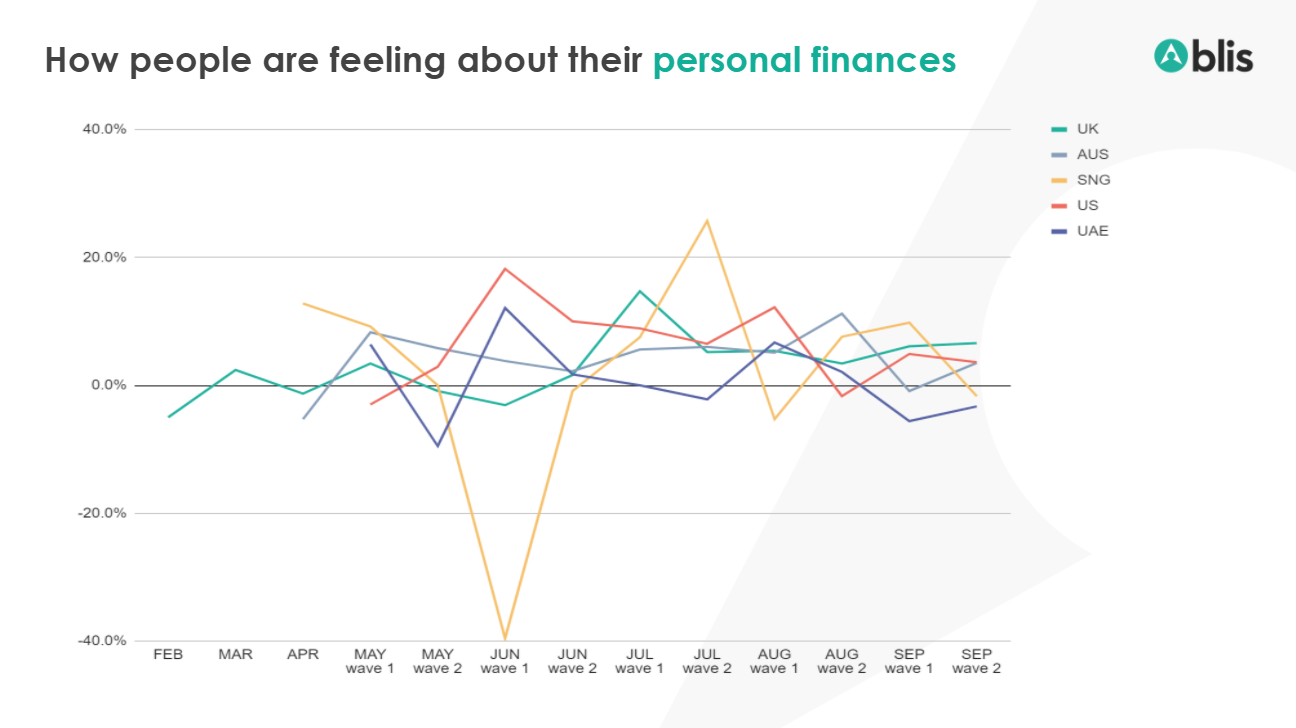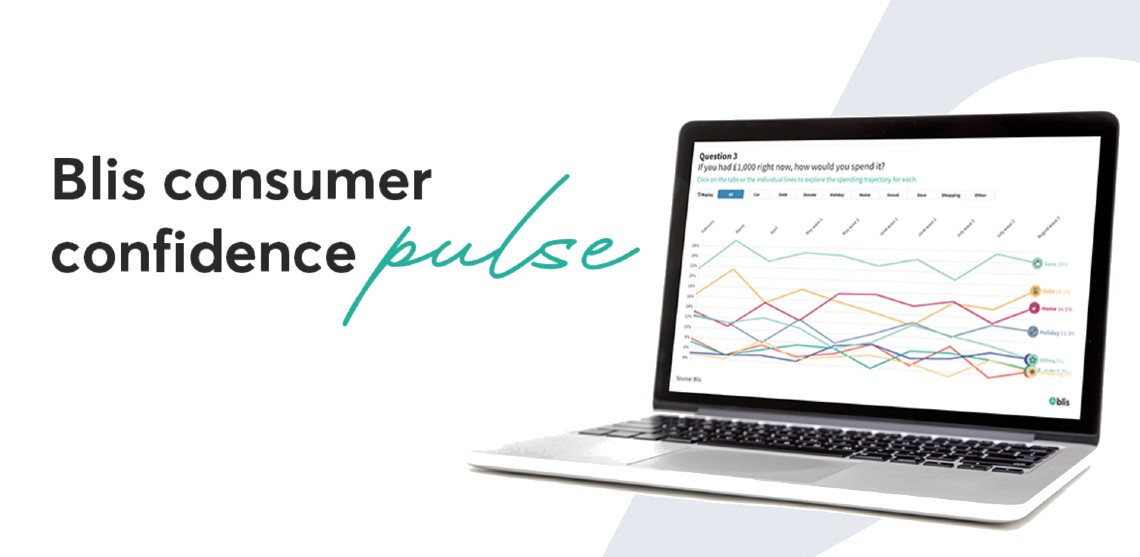Throughout 2020 a new mindset emerged amongst consumers as the pandemic continued to disrupt everyday life across the world. As the months have progressed, both the health crisis and economic downturn are continuing at pace. People are focusing on ensuring they can both keep themselves and their families safe and also continue to provide for them.
This mindset is evidenced in where people are going when they do leave their homes and also in how they say they are feeling. In this post from ‘The changing behaviour series’ we look at the data from Q3 of the Blis consumer confidence pulse to identify consumer sentiment in Australia, Singapore, UAE, UK and US.
With people out and about less often, understanding the levels of financial concern and the outlets for enjoyment and excitement helps supplement additional data sources and provide a more holistic view of these audiences.
People’s perceptions of their national economy remain in flux
While Australians were edging towards a positive outlook at the end of Q2, the following months saw a sharp decline, coinciding with the additional spikes and associated lockdowns experienced across the country. This situation mirrored the experience of many in the UK, where restrictions that were eased over the summer months were reintroduced following subsequent growth in numbers of new cases. Singaporeans also indicated a slump in confidence. This is despite cases being at their lowest and perhaps reflects the impacts of broader international challenges in the region.
Consumer sentiment in the UAE has remained however, on the whole, relatively robust throughout the COVID-19 period. There are some nuances within this with a notable shift of respondents switching from positive to neutral in the last month which could be attributed to the rising cases in a number of the UAE’s constituent regions. US respondents on the other hand switched in the opposite direction with more consumers switching their neutral opinions towards a more optimistic outlook on the economy. It appears the U.S. government’s commitment to reopening the economy has successfully stimulated public confidence.

Uncertainty about the future is continuing cautious optimism about personal finances
Despite the vast differences in opinions on national economies, for the most part, consumers are remaining relatively positive about their household financial situations. Within the UK confidence in personal finances has remained robust, perhaps bolstered by the government’s furlough scheme, which is undergoing changes towards cessation. Consumers in the US are also indicating positively, although there has been a marked increase in pessimism in the last 6 weeks.
While Australians are feeling consistently optimistic about their own finances, a significant proportion are veering between negative and neutral between each period, indicating that the lockdown measures may be having an impact in this outlook also. For Singaporeans, consumer confidence regarding their own household financial situation has run in tandem with their outlook on the broader economy while for residents of the UAE there is much greater fluctuation, dropping into a negative outlook in September .

Financial prudence has pervaded throughout the period with saving and repaying debt as the most likely destination for a spare 1,000. And yet, there are opportunities for brands, with more Australian and UK consumers intending to spend the cash on retail, US consumers considering purchasing a car or those in the UAE considering taking a holiday.
In addition, the US and UAE both saw a real shift and surge in investments alongside a drop in saving and repaying debt. As the crisis has likely gone on much longer than the majority of consumers expected some may be looking to bolster household finances. Understanding the shifts in intent within markets will help with planning global and regional brand strategies.
Interestingly, home improvement has remained mostly consistent for all markets throughout the period. With working from home on the cards for many office workers for the foreseeable future, this pattern is likely to continue as people try to reduce contact with people outside their social bubbles.
And following months of hardship for many and the end of 2020 looming, more respondents are indicating that they would donate the funds. This indication of consumers supporting causes they care about will help inform corporate social responsibility activations. Many consumers are staying loyal to brands that they have perceived to be helping throughout the crisis.
To dig in deeper to the data, check out the trackers for the UK, US, UAE, Australia and Singapore here.
